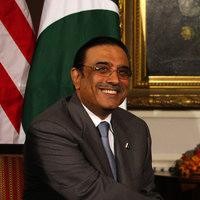As the American media breathlessly reported the news of Osama bin Laden's death, several observers pointed out an error made by CNN's Wolf Blitzer, among others: Abbottabad is not a suburb of Islamabad, as he described it, but rather a garrison city located about 35 miles from the Pakistani capital.
Blitzer's mistake, though minor in the scheme of things, is emblematic of a broader failure by Americans to understand Pakistan. Much more is made of the outlandish conspiracy theories held by many Pakistanis about the U.S. than of Americans' misconceptions about Pakistan. With the U.S.-Pakistan relationship in dire straits following the raid on bin Laden's hideout, it is high time to expose these myths.
These misconceptions are a paradoxical combination of undue alarmism and misplaced optimism. For an example of alarmism, take the notion that Pakistan is "the most dangerous country in the world" -- a characterization strengthened by the discovery that bin Laden had been hiding in Pakistan. Ever since Newsweek printed these words on a 2007 cover, the assertion has rankled Pakistanis to no end.

